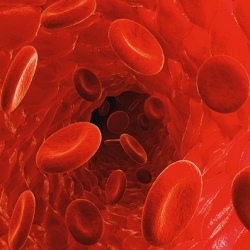
A team of Chinese scientists is planning to use a CRISPR-Cas9 gene-editing on humans for the first time next month. The procedure at Sichuan West China Hospital in Chengdu will attempt to treat lung cancer where chemotherapy, radiation, and other conventional treatments have failed.
If successful, the trial could pave the way for more CRISPR-based treatments in the future, potentially revolutionizing the way we treat a wide variety of diseases and ailments. CRISPR-Cas9 is a DNA construct that uses a strand of RNA to locate a specific part of an organism’s genetic sequence. Cas9 enzymes then "cut out" that part of the DNA strand, and a new DNA template can be inserted into the deleted section.
In the case of the upcoming Chinese treatment, however, a DNA segment in the patients’ immune system cells will be deleted, but no new DNA template will be inserted into the genome as a replacement. First the patients’ own immune system T cells will be extracted from their blood.
CRIPSR-Cas9 will then be used to delete a gene that produces a protein known as PD-1, which can negatively impact the T cells ability to target and kill cancer cells. The genetically altered cells will then be multiplied in a lab and injected into the patients to flood their systems with modified, cancer-targeting cells.
The United States’ National Institutes of Health (NIH) approved a similar procedure last month, which will involve deleting the gene that produces PD-1 from patients’ cells and adding an extra gene to help combat three types of cancer: melanoma, sarcoma and myeloma. The U.S. human trial using CRISPR could take place by the end of the year, pending approval by the FDA and a university review board.
This type of genetic cancer treatment has already been successfully carried out in the United Kingdom, where doctors used a gene-editing tool similar to CRISPR, called TALEN, to eliminate an infant girl’s leukemia.
The Chinese trial is designed to test whether genetic alteration of the immune system is a safe and viable way to treat diseases in humans. Three different dosage regimens of the modified cells will be tested on ten patients, who will be closely monitored to make sure the treatment does not produce any negative side effects. One concern is that the genetically modified T cells could target parts of the patients’ bodies, such as the gut or the adrenaline glands, in addition to the cancer cells.
China was also the fist country to use CRISPR to edit human embryos, and the first country to create CRISPR-edited primates. The People’s Republic has also experimented with gene editing tools to increase the muscle mass of mammals to augment the country’s livestock industries.
A number of additional applications for CRISPR are currently being researched, from the agriculture industry to pharmaceuticals. There is even a proposal to modify pig organs so they can be transplanted into humans.
The Chinese trial is by far the most significant line to be crossed in using CRISPR technology. Where it leads us is anyone’s guess.
